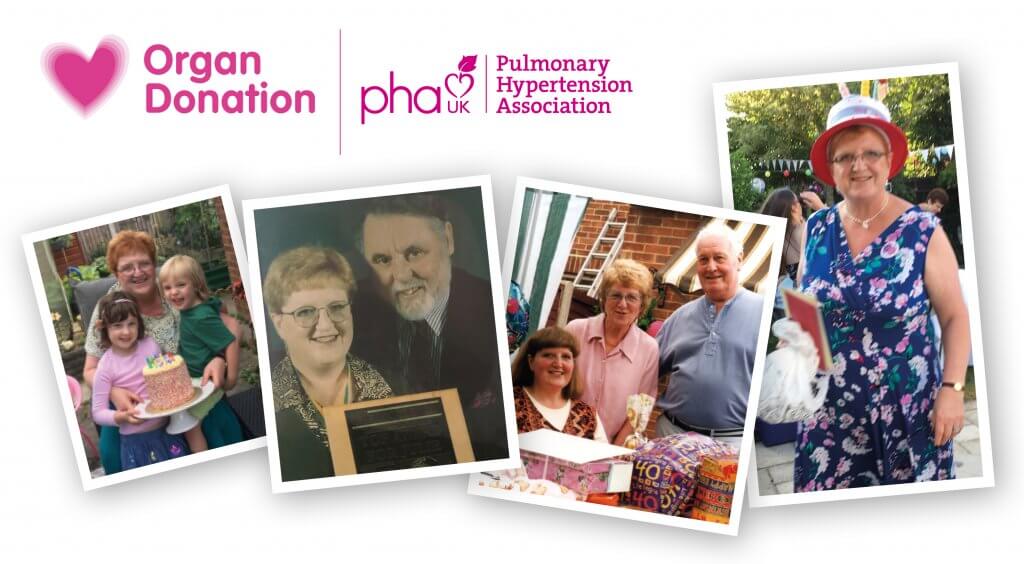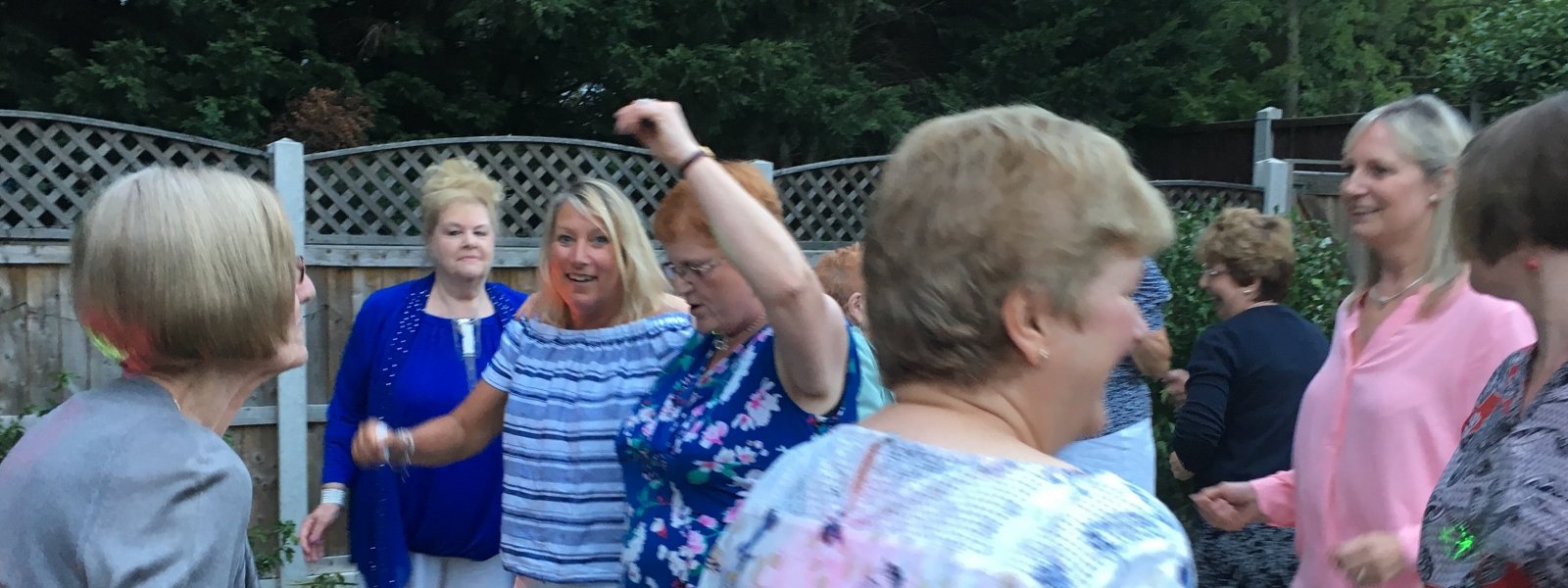Life after my transplant: 23 years of memories
Julie Warner’s heart and double lung transplant saved her life, and she will always be grateful to her donor. This is her extraordinary story, which she is sharing in support of Organ Donation Week 2021.

“I was 37 years old when I was diagnosed with idiopathic pulmonary hypertension and I was listed for transplant on my 38th birthday, in July 1995.
I was on the waiting list for two years and nine months. I was given a pager to carry 24/7 and advised to have a bag packed ready for admission. I continued to work full time as a District Nurse Team Leader and my employers were very supportive at that time.
The first 15 months of waiting was a period of adapting both physically and emotionally.
I was put in touch with a monthly support group for pre- and post-transplant patients at my hospital and I attended as often as I could.
The information and advice I got from these sessions certainly helped in preparing for surgery and my post-operative recovery. The experiences of the post-transplant patients were invaluable for me, and I still keep in touch with one friend that I met there.
Starting to struggle
By the time I had been on the list for 17 months I was struggling, and I was admitted to hospital for two weeks with heart failure and low oxygen levels. Intravenous medication eased my symptoms and once home I needed a minimum of 18 hours of oxygen therapy each day, so I had to take continuous sick leave from my job whilst I waited for the transplant.
This was a particularly difficult time to adjust to emotionally as I thought it was going to be the end of my life. With the support of my parents and good friends I was able to remain mostly positive, but inevitably I had down days the longer I was on the waiting list.
On my 40th birthday, in July 1997, my parents organised a garden party at their home for family and close friends. It was a beautiful sunny day and they worked hard to make it so special. I will never forget it.
By January 1998 I was really suffering with my symptoms, both physically and emotionally. I was reassessed but nothing could be offered.
Becoming a ‘domino donor’
I met with [renowned cardiothoracic surgeon] Professor Magdi Yacoub at this time and expressed how my quality of life was suffering. He spoke to me about offering to be a ‘domino donor’ of my heart – which meant donating my own heart for transplant when I received another.
He explained my heart would recover in time, once relieved of the PH, so it could help someone else in need. I didn’t hesitate in consenting if it meant someone’s life could be saved too. Plus, it felt like I was giving something back.
The recipient of my heart was a man who had suffered many cardiac arrests. I received a letter from him afterwards, expressing his gratitude, and we continued to exchange occasional letters and transplant anniversary cards until he sadly died ten years later.
Undergoing surgery
On 2nd May 1998, I had an alert from my pager. I rang the transplant co-ordinator and was told there was a match available, and I had two hours to get to the hospital.
I was accompanied by parents and my best friend, Barbara, and went into theatre at midnight.
The surgery went smoothly, but, as in a lot of cases, when the donor organs are handled it can cause them to swell a little – but once transplanted and allowed to rest, the swelling subsides. This happened to me, so I was on life support for longer and my chest wasn’t fully closed for three days. I was ventilated for 11 days in total, but for others it’s quicker.
I spent six weeks gradually recovering and getting stronger. I initially noticed the shortness of breath had subsided and as I recovered, the dreadful fatigue had gone, and my energy levels increased by the day. I was able to manage longer walks, climb stairs with ease, and almost run up inclined paths! I restarted swimming which helped build up my strength further.
Getting back to ‘normal’ life
I couldn’t return to work until 1999 as I had to wait for my driving license to be reinstated, but it gave me extra time to rebuild my strength and enjoy some of the social life I’d missed out on.
I continued my full-time role as a District Nurse Team Leader for ten years, until tremors in my hands (a side-effect of the anti-rejection drugs) forced me to take early retirement. The tremors haven’t stopped me living life independently; I just adjust my routine to manage.
The life-reliant medication I have been taking since my transplant isn’t without potential side effects, but I undergo regular screening including blood tests, heart scans every five years, and an annual meeting with a pharmacist. I also have access to the wider multidisciplinary teams at my hospital if required.
Making memories
Since my transplant I’ve enjoyed a healthy life and I’ve not had any rejection problems in the last 23 years, so I know I am extremely lucky.
I have had many wonderful holidays abroad with friends, had fun times at pop concerts and festivals, and enjoyed theatre trips and memorable social gatherings with family and friends. I’ve been able to do all of this with energy and enthusiasm instead of feeling fatigue, shortness of breath and needing oxygen therapy.
In the year 2000 my friend nominated me for a local ‘achievement over adversity’ award, which I won. I was interviewed by the local media and presented with my award by the hostage survivor Terry Waite. It was my few moments of fame!
I have passed a few milestones, including my 50th and 60th birthdays – which was an excuse for a party on both occasions. My 60th party was a celebration I’ll never forget, and we all danced the night away in my garden.
Looking to the future
I have been lucky to have some good friends of many years who have given their love and support when I needed it and I thank them all for helping me stay positive.
My close friend Barbara has been with me from the start of my PH journey, and I shared the joys of her children growing up. I am a close part of their lives now and her daughter Milly’s children affectionately call me ‘Nana Juju’. I love them dearly and I’m lucky to have them in my life. They are all like family to me and helped support me through the pandemic and times of shielding. I am looking forward to making more happy memories in the future.”















